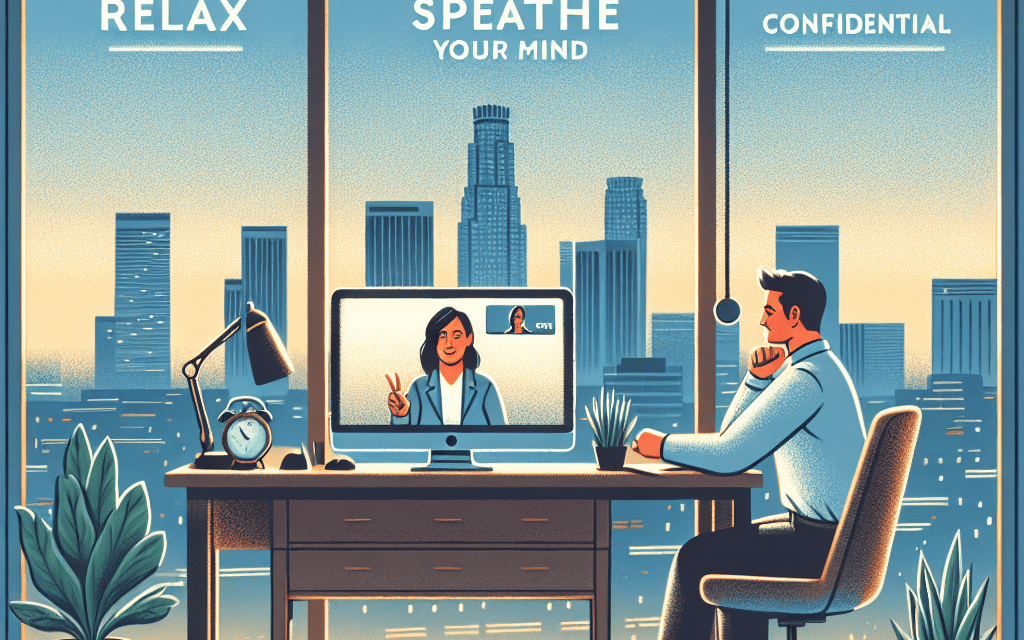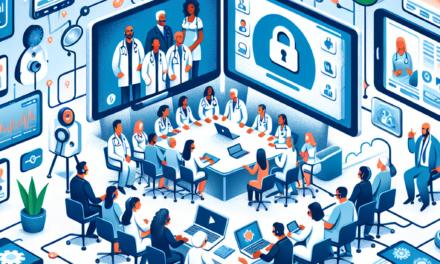Essential Insights for Your First Online Psychiatry Session in Los Angeles
As mental health awareness continues to grow, more individuals are seeking help through online psychiatry. This trend has been particularly pronounced in urban areas like Los Angeles, where the demand for mental health services often exceeds supply. If you’re preparing for your first online psychiatry session, understanding what to expect can significantly enhance your experience. This article provides essential insights into the process, from choosing the right psychiatrist to preparing for your session and understanding the therapeutic process.
1. Understanding Online Psychiatry
Online psychiatry, also known as telepsychiatry, involves providing psychiatric services through digital platforms. This method has gained traction due to its convenience and accessibility, especially in a sprawling city like Los Angeles.
What is Online Psychiatry?
Online psychiatry allows patients to consult with licensed psychiatrists via video calls, phone calls, or messaging platforms. This service can include initial assessments, ongoing therapy, medication management, and follow-up consultations. The rise of telehealth has made it easier for individuals to access mental health care without the barriers of travel or time constraints.
Benefits of Online Psychiatry
- Accessibility: Patients can connect with specialists who may not be available in their immediate area.
- Convenience: Sessions can be scheduled around personal commitments, reducing the need for time off work or travel.
- Comfort: Many individuals feel more at ease discussing personal issues from the comfort of their own homes.
- Continuity of Care: Online platforms allow for consistent follow-ups, which is crucial for effective treatment.
Challenges of Online Psychiatry
While online psychiatry offers numerous benefits, it also presents unique challenges. Some of these include:
- Technical Issues: Poor internet connectivity can disrupt sessions.
- Limited Physical Assessment: Psychiatrists cannot conduct physical examinations, which may be necessary for certain diagnoses.
- Privacy Concerns: Patients must ensure that their sessions are conducted in a private space to maintain confidentiality.
2. Choosing the Right Psychiatrist
Selecting the right psychiatrist is crucial for a successful online therapy experience. In Los Angeles, where there is a diverse range of mental health professionals, it’s essential to find someone who meets your specific needs.
Factors to Consider
- Specialization: Look for a psychiatrist who specializes in your area of concern, whether it’s anxiety, depression, PTSD, or another issue.
- Credentials: Ensure that the psychiatrist is licensed and has the necessary qualifications to practice in California.
- Experience: Consider the psychiatrist’s experience with online therapy, as this can impact the effectiveness of your sessions.
- Approach to Treatment: Different psychiatrists may use various therapeutic approaches, such as cognitive-behavioral therapy (CBT) or psychodynamic therapy. Research their methods to find a good fit.
Researching Potential Psychiatrists
Utilize online resources to research potential psychiatrists. Websites like Psychology Today and Zocdoc allow you to filter professionals based on location, specialty, and insurance acceptance. Additionally, consider reading reviews and testimonials from previous patients to gauge their experiences.
Initial Consultation
Many psychiatrists offer an initial consultation, which can be a valuable opportunity to assess compatibility. During this session, you can ask questions about their approach, experience, and treatment philosophy. Pay attention to how comfortable you feel discussing your concerns with them, as a strong therapeutic alliance is essential for effective treatment.
3. Preparing for Your First Session
<pPreparation is key to making the most of your first online psychiatry session. Here are some steps to ensure you are ready for your appointment.
Setting Up Your Environment
Choose a quiet, private space for your session where you won’t be interrupted. Ensure that your device is charged and that you have a stable internet connection. Test your video and audio settings beforehand to avoid technical difficulties during the session.
Gathering Relevant Information
Before your session, take some time to gather any relevant medical history, including:
- Previous mental health diagnoses
- Current medications and dosages
- Any past therapy experiences
- Family history of mental health issues
Having this information readily available can help your psychiatrist understand your background and tailor their approach accordingly.
Identifying Your Goals
Consider what you hope to achieve from your sessions. Are you looking for a diagnosis, coping strategies, or medication management? Clearly defining your goals can help guide the conversation and ensure that your psychiatrist addresses your concerns effectively.
Preparing Questions
Prepare a list of questions to ask your psychiatrist during the session. This could include inquiries about their treatment approach, what to expect from therapy, and how to measure progress. Asking questions not only provides clarity but also demonstrates your engagement in the process.
4. What to Expect During the Session
Your first online psychiatry session will likely follow a structured format, but it’s essential to know what to expect to alleviate any anxiety you may have.
Initial Assessment
The session will typically begin with an initial assessment, where the psychiatrist will ask about your mental health history, current symptoms, and any relevant life events. This process is crucial for understanding your situation and developing a treatment plan.
Discussion of Treatment Options
After the assessment, your psychiatrist may discuss potential treatment options. This could include:
- Therapy: Various therapeutic approaches may be recommended based on your needs.
- Medication: If appropriate, the psychiatrist may prescribe medication to help manage symptoms.
- Self-Care Strategies: Your psychiatrist may suggest lifestyle changes or coping strategies to support your mental health.
Establishing a Treatment Plan
Together with your psychiatrist, you will develop a treatment plan that outlines your goals, the recommended approach, and the frequency of sessions. This plan serves as a roadmap for your therapy journey and can be adjusted as needed based on your progress.
Follow-Up and Communication
At the end of the session, your psychiatrist will likely discuss follow-up appointments and how to communicate between sessions. Establishing clear lines of communication is vital for ongoing support and addressing any concerns that may arise.
5. Understanding the Therapeutic Process
Engaging in online psychiatry is just the beginning of your mental health journey. Understanding the therapeutic process can help you navigate your treatment effectively.
The Role of the Psychiatrist
Your psychiatrist plays a crucial role in your mental health journey. They are responsible for diagnosing mental health conditions, prescribing medication, and providing therapy. Their expertise allows them to tailor treatment plans to meet your unique needs.
The Importance of Consistency
Consistency is key in therapy. Regular sessions help build rapport and allow for ongoing assessment of your progress. It’s essential to attend sessions as scheduled and communicate openly about any changes in your symptoms or circumstances.
Measuring Progress
Measuring progress in therapy can be subjective, but there are several ways to assess your growth:
- Self-Reflection: Regularly reflect on your feelings and behaviors to identify changes over time.
- Feedback from Your Psychiatrist: Your psychiatrist will provide insights into your progress based on their observations and assessments.
- Goal Achievement: Evaluate whether you are meeting the goals set in your treatment plan.
Overcoming Challenges
Therapy can be challenging, and it’s normal to encounter obstacles along the way. Some common challenges include:
- Resistance to Change: It can be difficult to implement new strategies or confront uncomfortable emotions.
- Setbacks: Progress may not always be linear, and setbacks can occur.
- Finding the Right Fit: If you feel that your psychiatrist isn’t the right match, don’t hesitate to seek a different professional.
Conclusion
Your first online psychiatry session in Los Angeles can be a transformative step towards better mental health. By understanding the nuances of online psychiatry, choosing the right psychiatrist, preparing effectively, and knowing what to expect during the session, you can set yourself up for success. Remember that therapy is a journey, and consistency, open communication, and self-reflection are vital components of the process. With the right support and commitment, you can navigate your mental health challenges and work towards a healthier, more fulfilling life.





